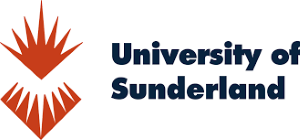Seminal moment for University of Sunderland’s School of Medicine
 The University of Sunderland’s School of Medicine has been granted official status by the General Medical Council (GMC) in a seminal moment for the institution.
The University of Sunderland’s School of Medicine has been granted official status by the General Medical Council (GMC) in a seminal moment for the institution.At its meeting this month, the GMC agreed to add the University to the list of bodies able to award UK primary medical qualifications.
The move is the culmination of years of hard work by staff and students following the first announcement that the University would be opening a medical school back in 2018.
Since then, the School, which welcomed its first medical students in September 2019, has been under the scrutiny of the GMC’s rigorous testing procedures, ensuring it reaches the highest standards.
Sir David Bell, Vice-Chancellor and Chief Executive of the University, said: “This is a seminal moment as approval of primary medical qualification – PMQ – status confirms our position as a leading force when it comes to providing the full range of health-related qualifications.
“As a result, future generations of citizens far and wide are going to benefit from the expertise of, and the care provided by, Sunderland doctors.
“I pay tribute to Professor Scott Wilkes, Head of the Sunderland Medical School, and his colleagues for their outstanding work to bring us to this position. I would also like to thank University staff past and present – including my predecessor, Shirley Atkinson – for their vision, foresight, and boldness in bidding to host a medical school here in the first place.”
Sunderland was one of only five new medical schools announced in 2018 in a bid to address the regional imbalance of medical education places across England and to widen access to ensure the profession reflected the communities it serves.
Since then, it has grown in size and reputation, opening an Anatomy Centre in early 2022 and moving into the Murray Health building this year. The University’s capital plan also includes around £30m for further medical and health-related developments, ensuring that students are taught in some of the best facilities in the country.
Professor Scott Wilkes, Head of the School of Medicine, said: “I’ve been privileged to lead the most exciting project of my life, to establish the medical school in Sunderland.
“Over the last seven years, I’ve been supported by some wonderful people and I’m immensely proud of the team, which is in excess of 150 staff from across the University, hospital trusts and GP practices.
“For me, the absolute delight is in the wider benefit of being a significant contributor to the health and wealth of Sunderland and the wider north-east.
“Our philosophy promotes accessible medical education for talented individuals from underrepresented backgrounds, which is reflected in the diversity of our students.
“I will be incredibly emotional to see our pioneer cohort graduate in July.”
Pro Vice-Chancellor and Dean of Health Sciences and Wellbeing, Professor Laura Stroud added: “This is a huge stride forward in realising our ambition to produce excellent medical doctors to serve our patients and population here in Sunderland.
“I am proud of our staff and students who have come together to make this a reality. Our students have benefitted from being taught in these excellent facilities alongside the whole multi-professional team, with input from our wonderful Patient, Carer and Public Involvement participants from the beginning.”
Professor Colin Melville, Medical Director and Director of Education and Standards at the GMC, said: “The GMC rightly has high standards and a very rigorous process before any new school is approved to award medical degrees to graduating students.
“I am delighted we have been able bestow this status on the University of Sunderland’s medical school. It is testament to their hard work over a number of years.”
The University is now the only one in the region which offers a full suite of health-related courses, including paramedic and other health-related sciences, nursing, midwifery, physiotherapy, and occupational therapy.
The first cohort of new doctors will graduate at the Stadium of Light this summer.





















